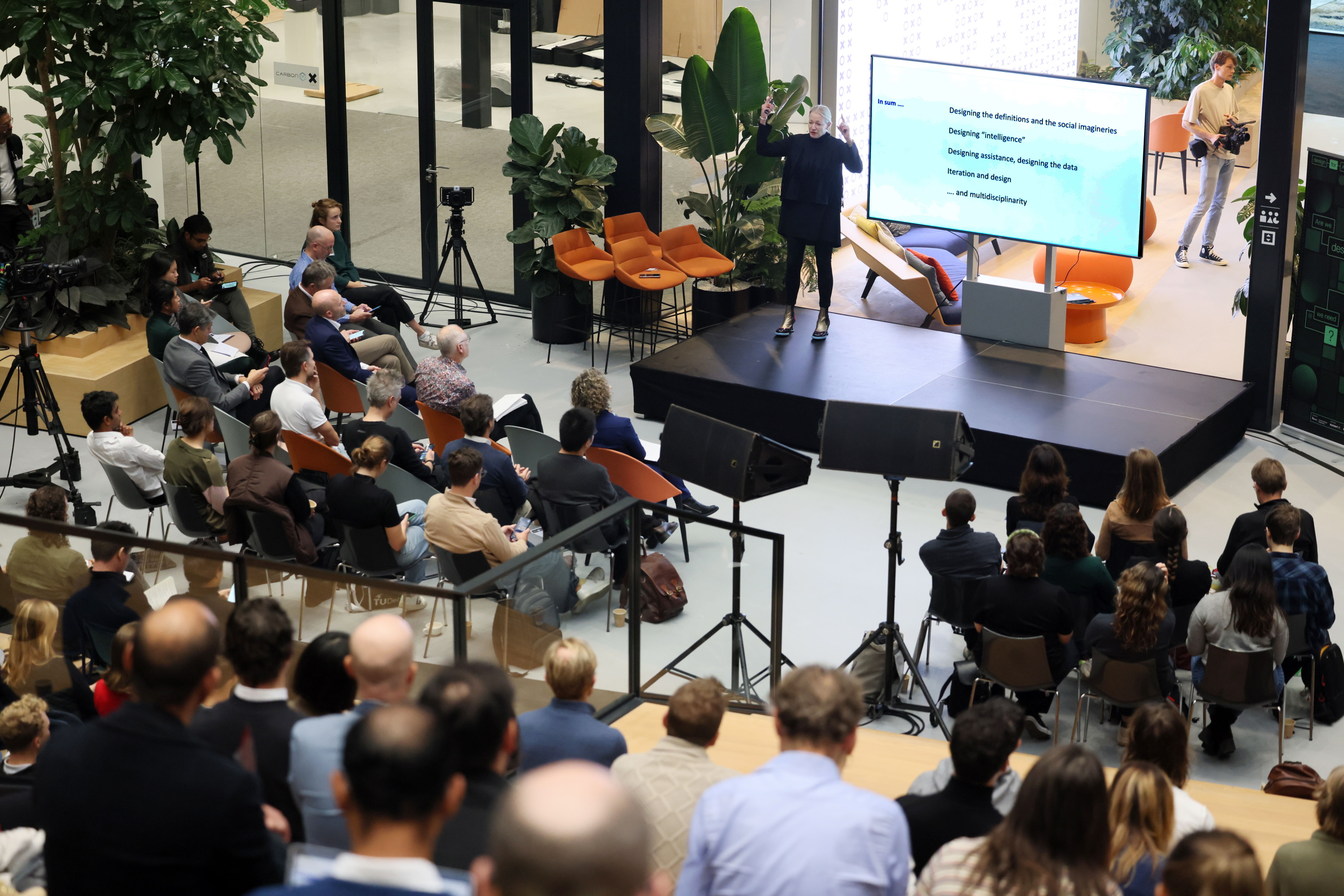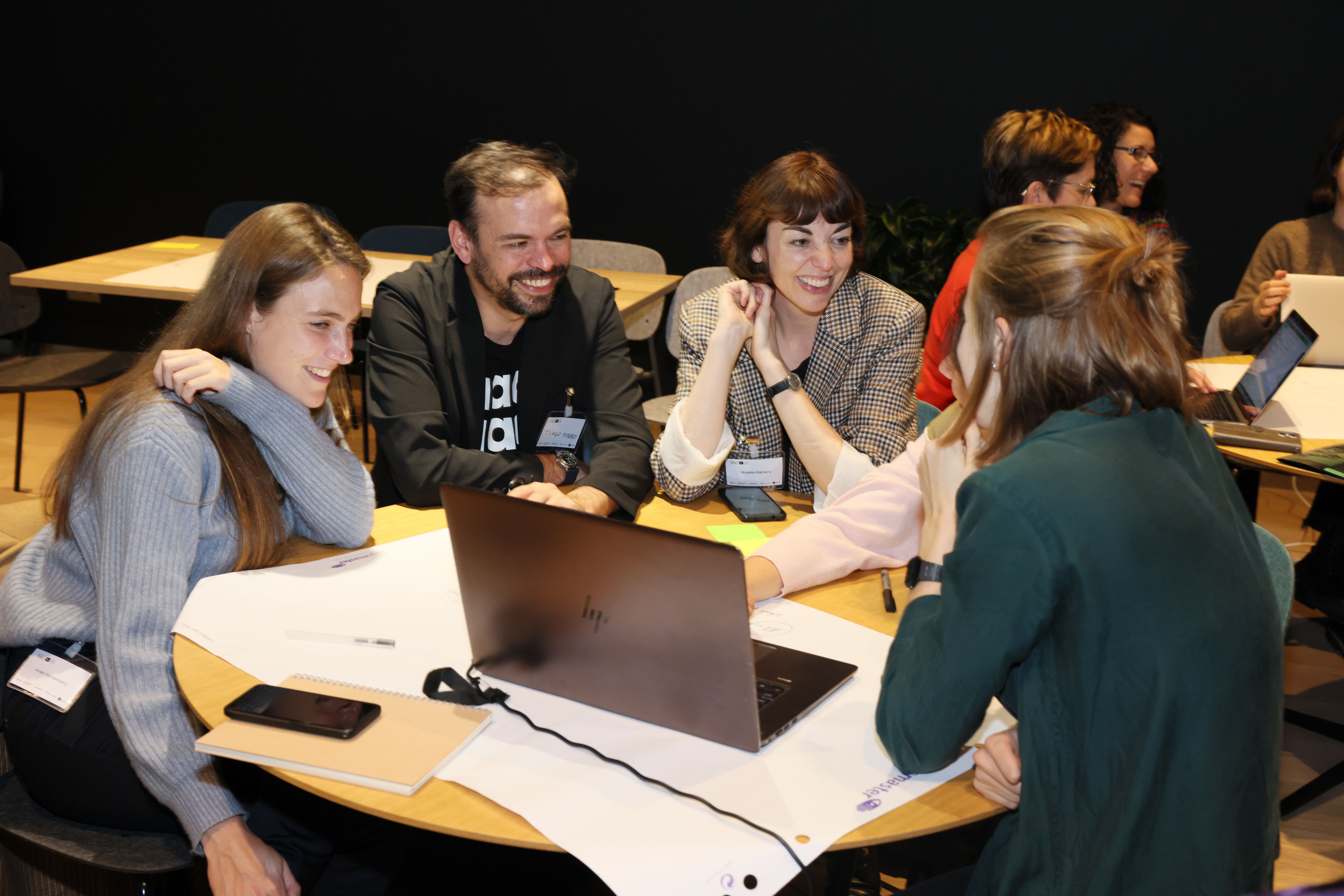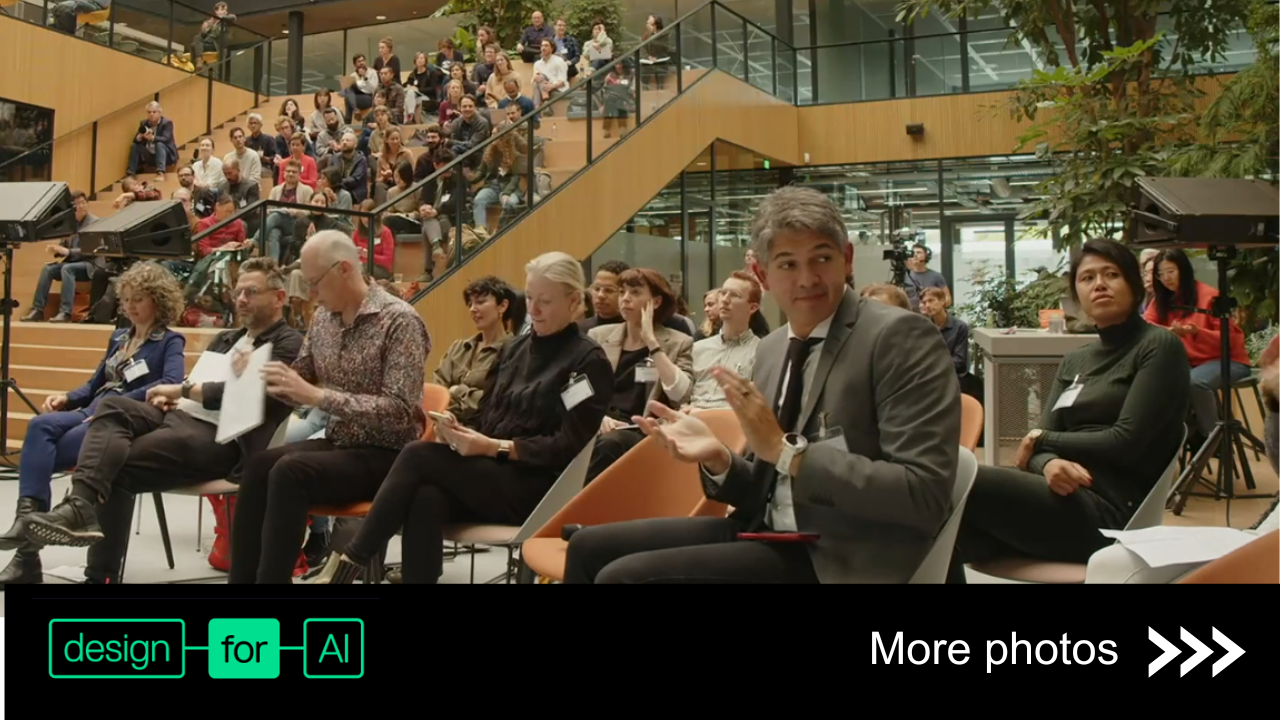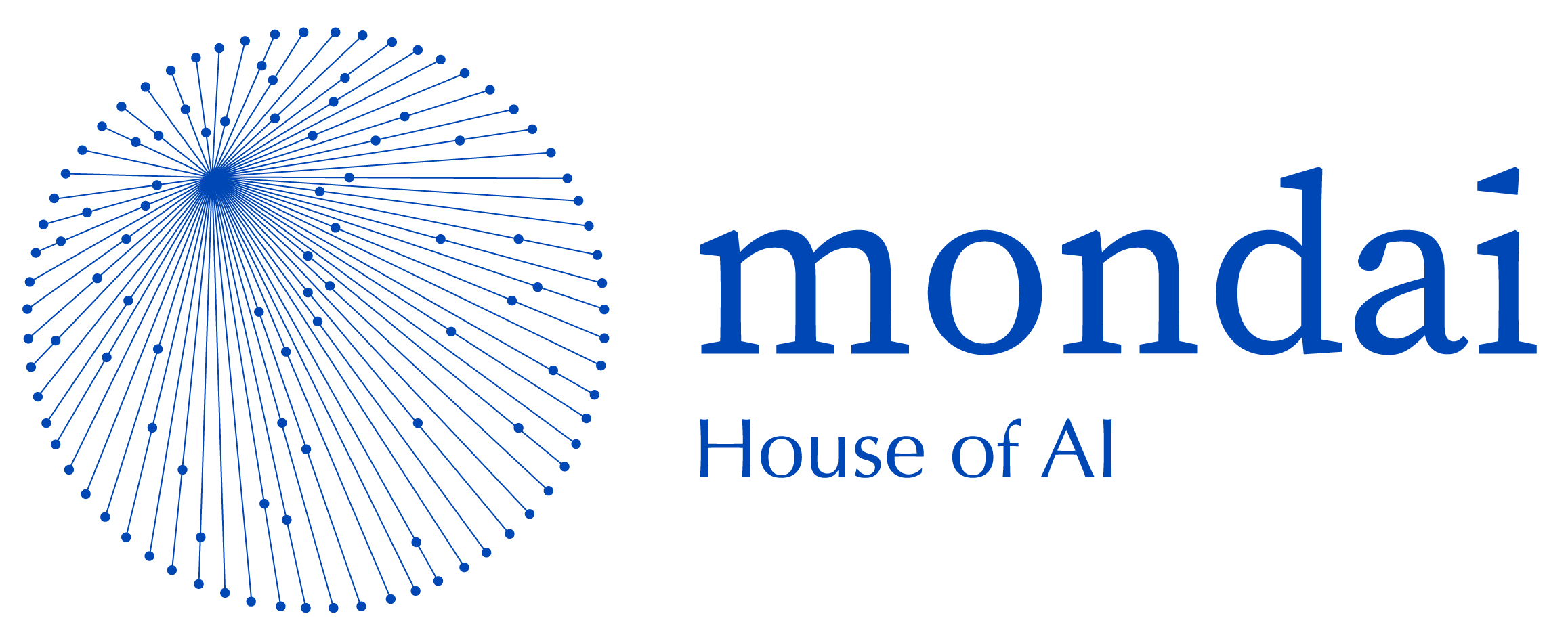DESIGN FOR AI SYMPOSIUM | TU DELFT
Design for AI Symposium 2022
What happened?
On the 14th of October in 2022, we hosted our first Design for AI “Are we designing the AI we need?” symposium. We have listened to inspiring keynotes of Elizabeth Churchill (Google), Matt Jones (Lunar Energy), John Zimmermann (HCI Institute Carnegie Mellon University) and Caroline Sinders. Additionally, there were workshops of CHI NL, University of Eindhoven and University of Twente. Hosted by IDE’s own Elisa Giaccardi and Dave Murray-Rust. Read about our day and watch recordings from the talks.
Design For AI 2022 Symposium Compilation (22:27)
This is a programme of TU Delft Industrial Design Engineering, with main sponsor Kickstart AI, in collaboration with TU Delft AI Initiative and Mondai | House of AI at NEXT Delft.
Making the Weather - Reflections on Design for AI Symposium
By Phil van Allen - IDE Programme Coordinator
On October 14, 2022, the TU Delft Faculty of Industrial Design Engineering presented the first ever Design For AI symposium at the Next Delft building on the TU Delft campus. This event featured internationally known speakers and focused on the importance of defining the future of AI by “Making the Weather” through the most effective strategies for designing AI. In addition to thought-provoking keynotes, the day included informative and lively workshops on topics such as HCI in The Netherlands, discovering design issues in AI, and AI-enabled design research. There were also numerous opportunities for in-person discussion and networking in this growing, active research and commercial community.
The symposium was sold out and attended by over 150 designers, entrepreneurs, researchers and students, plus about 50 people watching the live-stream from 8 different countries. Sponsors included: Kickstart AI in collaboration with TU Delft AI Initiative and Mondai | House of AI at NEXT Delft.
Read more
The day started with a short introduction by Dean Caspar Chorus who discussed how designers are uniquely positioned to address the coming storm of technology innovation. Rather than “weathering the storm,” he suggested that we should instead, as designers, take the more proactive role of “making the weather.” We can do this by using design as an approach to ensure that the AI we get is AI that we need. So rather than regulating AI to fix it, we can design it better at the start to create preferable outcomes. He emphasised that this is possible because transdisciplinary designers like those at TU Delft IDE understand the people who will use AI, as well as the people who are making it.
Our keynote speakers provided a diverse set of perspectives on the design of AI, from the tech focused world of Google, Elizabeth Churchill questioned the very definition of AI, encouraging designers to be thoughtful about the language and methodologies they use for AI. Matt Jones brought years of deep design experience to argue that the metaphors we use for the design of AI are key. For example, he suggested that we think of AI not as a thing that has artificial agency, but rather as providing “Pedal Assist” like an electric bike does. Caroline Sinders argued that design should be an essential part of any policy development, since the application of policy will naturally involve design. As an example, she showed how GDPR failed frequently early on because some websites implemented “dark patterns” that seem to follow the policy by are in fact coercive. John Zimmerman discussed the reasons for a glaring gap in AI innovation, where about 85% of AI projects fail to deploy. In many cases, this is often because, his research at CMU found that the easier “low hanging” fruit of an application context are missed by the design team because the team has ambitions for AI that are too high.
Spread throughout the day were well-attended workshops. The Human Centered AI Systems Deep Dive explored the challenging issues of designing for AI through provocative experimentation with prompt-based text-to-image generators such as Dall-E 2. AI-enabled Design Research: Opportunities and Challenges explored the challenges and opportunities for AI-based design research, where AI can be used for the advancement of the research. The CHI Nederland workshop opened a dialog about a national agenda for Human Computer Interaction research in The Netherlands.
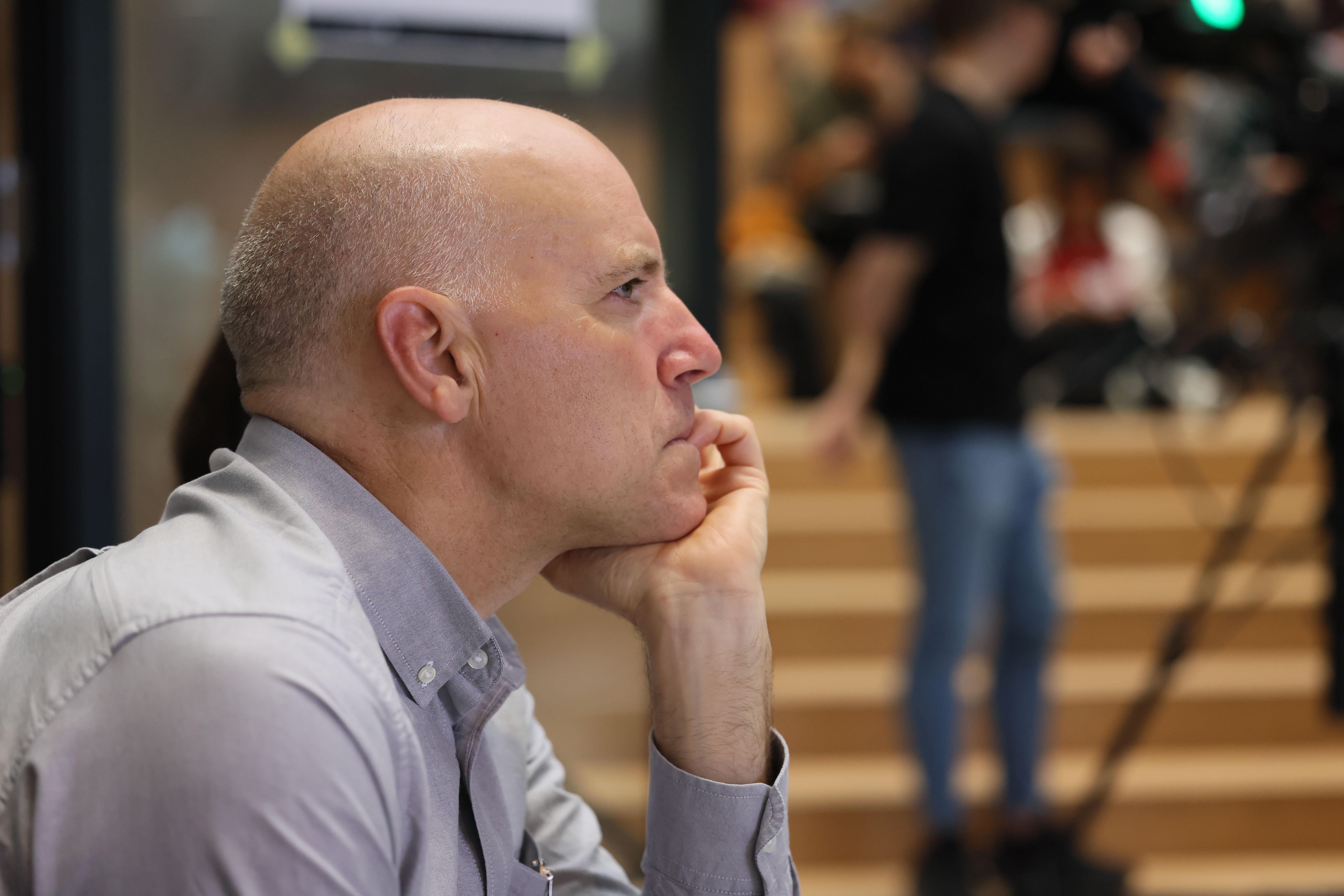
Video recordings of keynote speakers
What is AI anyway? (27:19)
Elizabeth Churchill (Director of UX at Google
Short edit (1:31)
Optometrists, Octopii, Rubber Ducks & Centaurs (35:18)
Matt Jones (Principal Designer at Lunar Energy)
Short edit (3:24) - Presentation slides
Using Design and Art as Provocations for Responsible Technology (27:30)
Caroline Sinders (Critical designer, researcher & artist)
Short edit (4:51)
Closing the AI innovation Gap (27:48)
John Zimmerman (Professor at HCI Institute of Carnegie Mellon University)
Short edit (8:24)
Main sponsor
Collaborators
Contact us
If you are interested to be involved in our Design for AI symposium for next year as a sponsor or collaborator, please do not hesitate to contact us via aidesign-io@tudelft.nl.
To keep posted on further developments on our Design & AI research and projects, follow us via Twitter @delft_design4ai.
Cannot get enough of Design & AI? Visit our website to read about our research or listen to our Design & AI podcast.

